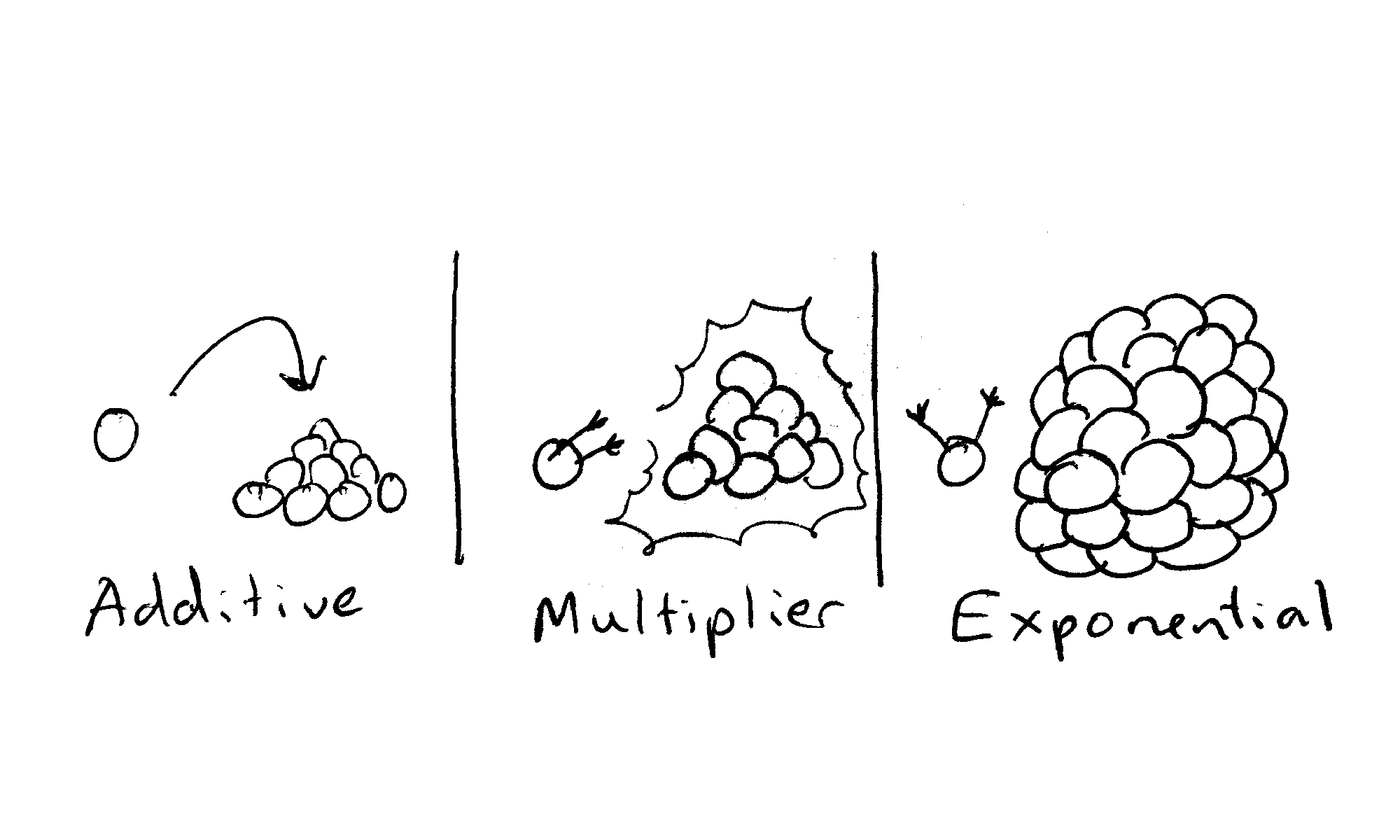In Leadership Is About People, we discuss what Andrew calls the Multiplier Effect of an effective leader: increasing the effectiveness of the members of the team instead of contributing individually.
The Multiplier Effect
One can imagine a factory boss sitting in the office dreaming of ways to make the factory workers incrementally more productive. If 100 people work in the factory, the boss can spend her day doing one of two things:
- Roll up her sleeves and help, effectively increasing the number of workers to 101, increasing throughput by 1% (the Additive Effect?)
- Seek systemic improvements that can improve the effectiveness of every factory worker by >1%, possibly much more
Newly-anointed leaders often feel compelled to contribute as an individual, especially when promoted from an individual contributor role. Reminding ourselves of a leaders role as a multiplier is one way to break that habit.
The Exponential Effect
As just discussed above, maximizing the Multiplier Effect is almost always a better way for a leader to spend her time than maximizing the Additive Effect. Can she do even better?
What if she spent her time engaging the workforce on the floor, and asking them how they think operations can improve? Encouraging creative thinking might have a near-term minor reduction in productivity (can you do factory work and draw on a white board with your boss at the same time?), but if each factory worker can find >1% productivity with practical improvements to process, the boss has multiplied her multiplier effect. This is what we call the Exponential Effect.
Congratulations, hypothetical factory boss! You just became a better leader by increasing factory throughput by more than 100%!

One Reply to “Multiplier Effect, Exponential Effect”
Comments are closed.